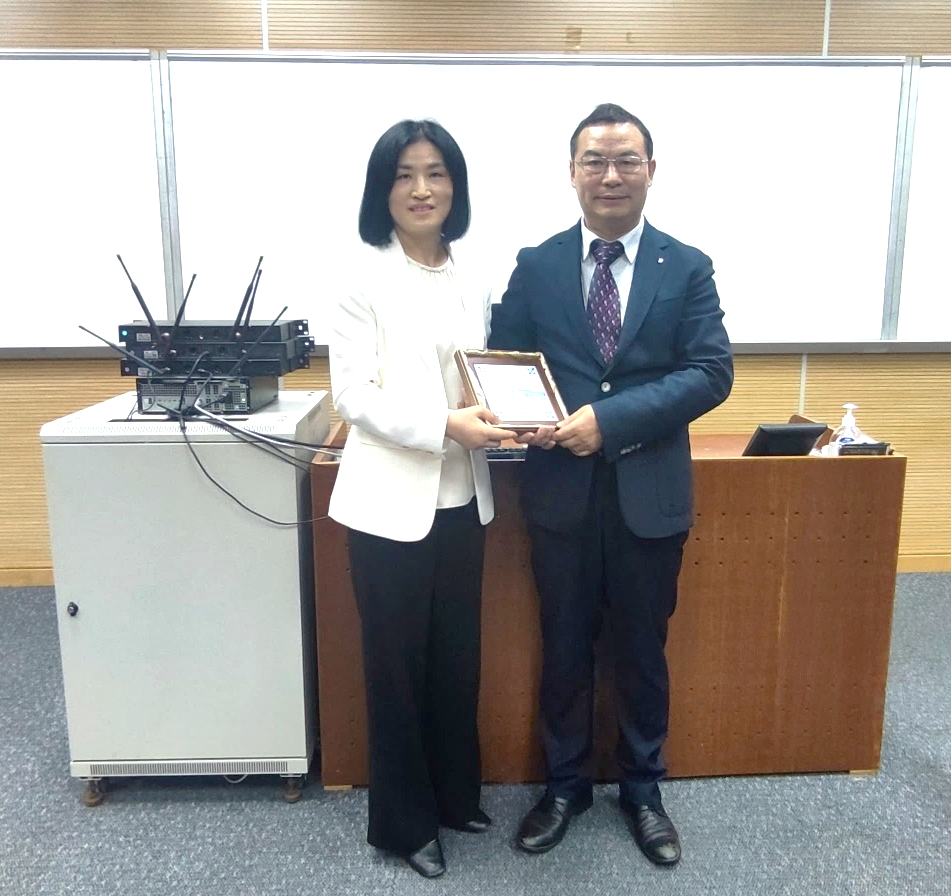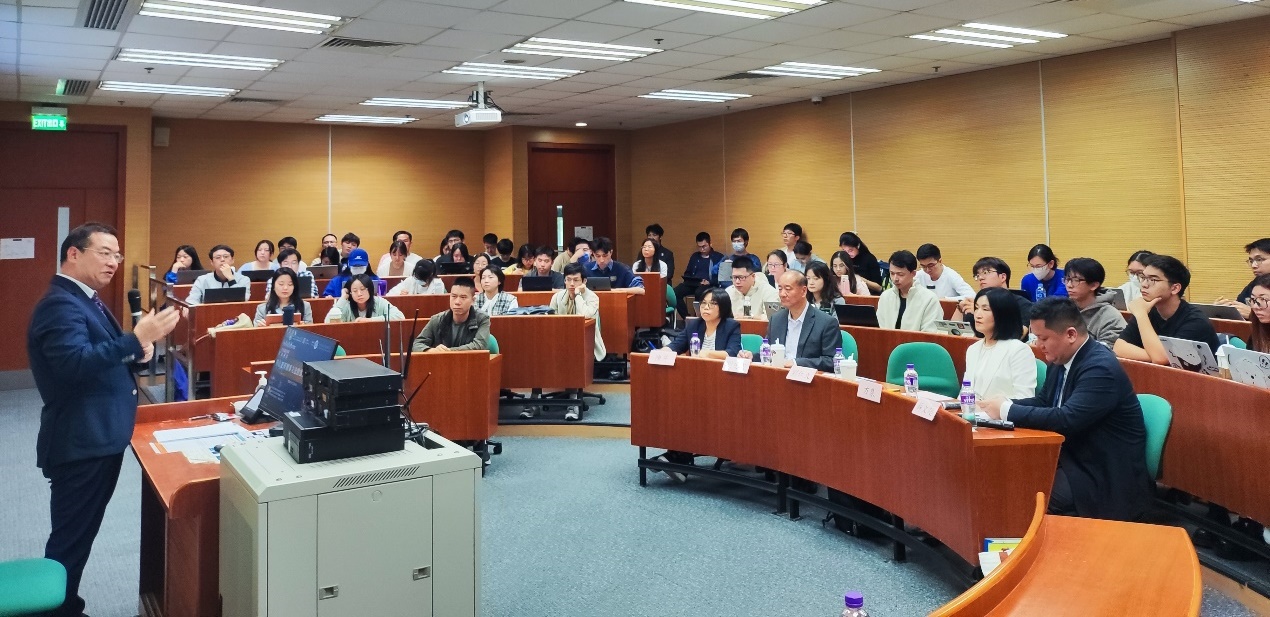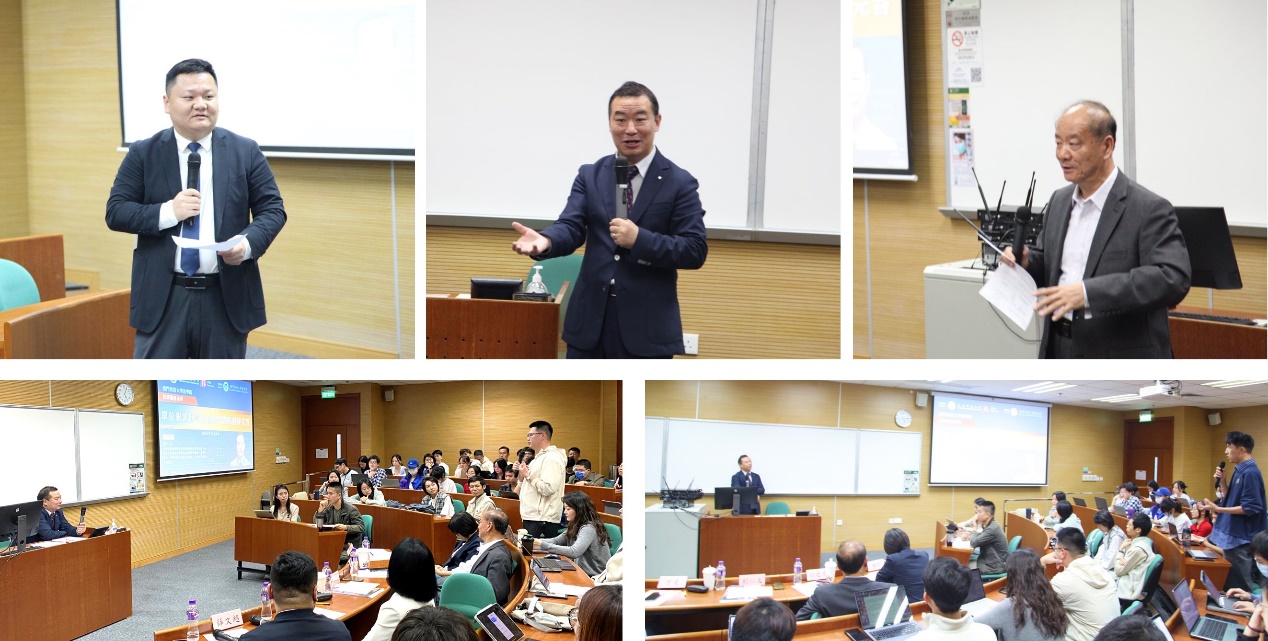On the afternoon of December 7, 2024, the Faculty of Law at Macau University of Science and Technology (MUST) successfully hosted a law lecture titled "Substantive and Procedural Improvements in Criminal Legislation on Unit Crime" in Room N221 of Block N. The lecture was delivered by Professor Liu Renwen, Director of the Criminal Law Research Department at the Institute of Law, Chinese Academy of Social Sciences; Professor and Doctoral Supervisor at the Law School of the University of Chinese Academy of Social Sciences; Vice President of the China Criminal Law Society; and Vice President of the China Criminology Society. The event was moderated by Assistant Professor Xue Wenchao of the MUST Faculty of Law, with Professor Liu Jianhong from the University of Macau Faculty of Law serving as a discussant. Dean Fang Quan, Assistant Professor Chen Qin, and over 100 students attended the lecture.

Dean Fang Quan Presenting a Souvenir to Professor Liu Renwen (Right)
The lecture began with a welcome speech by Dean Fang Quan, who presented a souvenir to Professor Liu Renwen on behalf of the Faculty. During the lecture, Professor Liu provided a detailed analysis of the legislative evolution, historical context, and complex issues surrounding unit crime from the perspective of three-dimensional criminal law. He addressed key topics of concern in both academic and practical circles.

Professor Liu Renwen During the Lecture
Professor Liu noted that unit crimes currently account for one-third of all offenses under China’s Criminal Law. However, the general provisions of the Criminal Law (Articles 30 and 31) offer only brief stipulations on the subject. He highlighted limitations in the current legal framework, such as the exclusive reliance on fines as penalties for unit crimes and the ambiguous definition of the subjects of unit crime.
Professor Liu emphasized the lack of specialized procedural rules for unit crimes in the Criminal Procedure Law, leading to inconsistencies and disharmony between criminal substantive and procedural legislation. He proposed future reforms, including clarifying the scope of unit crime subjects, diversifying and refining penalties for unit crimes, and establishing guidelines for applying sentencing considerations (e.g., voluntary surrender, confession, and meritorious service) traditionally used in individual crimes to unit crime cases.
In the discussion session, Professor Liu Jianhong highly commended Professor Liu Renwen’s analytical approach, stating that his exploration of the legislative history and context of unit crime not only clarified the legal framework but also charted directions for further research. He urged students to ground their academic inquiries in practical issues.
Assistant Professor Xue Wenchao remarked that Professor Liu Renwen’s lecture addressed critical topics of academic and practical relevance, offering profound insights. He emphasized the unique rationale for penalizing unit crimes in China, which aligns more closely with organizational liability, and stressed the need to clarify interpretations of the "unit" concept, legal consequences, and procedural norms for distinguishing unit crimes from individual crimes.

Q&A Session
During the Q&A session, Professor Liu Renwen provided detailed answers to students’ questions, concluding the lecture in a lively and engaging atmosphere.




